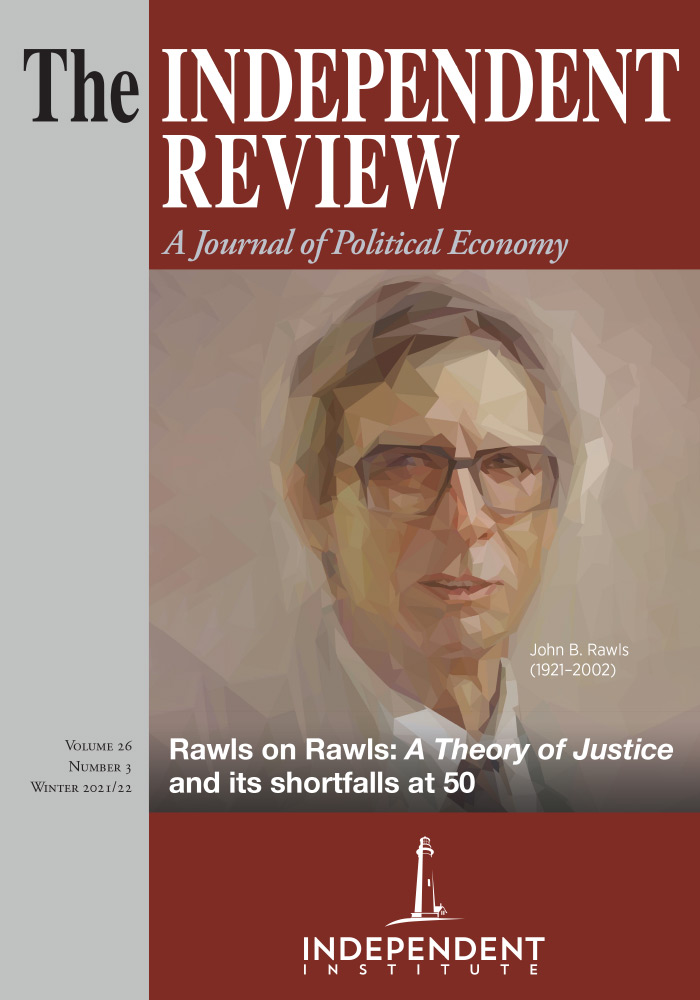In this issue of The Independent Review, Alexander Rawls—the son of philosopher John Rawls—argues that the theory of “justice as fairness” does not adequately handle the question of what people actually deserve. The best a society can hope for is a set of rules that create conventions of property rights and predictable order. A theory of justice that ignores the costs of adjudicating disputes is simply an invitation to rent-seeking. Alexander Rawls argues for a notion of justice in which claims of need and claims of desert get adjudicated together, allowing a more workable theory of justice to emerge. The Independent Review asked three prominent young philosophers to assess Alexander Rawls’ insights into his father’s work.
| Other Independent Review articles by Michael C. Munger | ||
| Fall 2024 | Tax Turmoil: A Dia Fenner Economic Thriller | |
| Fall 2024 | Retrieving Liberalism from Rationalist Constructivism, Volume I; Retrieving Liberalism from Rationalist Constructivism, Volume II | |
| Fall 2024 | The Dispersion of Power: A Critical Realist Theory of Democracy | |
| [View All (83)] | ||










